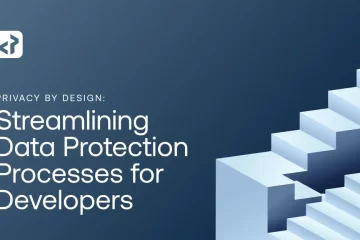Hey there, Let’s Talk About Accessing Your Personal Information
Have you ever wondered about your right to access your personal information? Well, it’s actually a fundamental right protected by Principle 6 of the New Zealand Privacy Act 2020. This principle ensures that you have control over your own data and can request access to it from organisations that hold it. It’s all about fostering transparency and trust between you and the entities that have your information.
What’s Covered in Principle 6: Access to Personal Information?
Under Principle 6, you have the right to request access to your personal information held by any organisation. This means you can:
- Check what data is collected and held about you.
- Understand how your personal data is being used.
- Make sure any incorrect information is corrected.
Just remember, this right applies only to your personal information, not someone else’s without their permission.
How Organisations Should Respond to Your Requests
Organisations have legal obligations when handling access requests, outlined in Part 4, Subpart 1 of the Privacy Act 2020. They must respond promptly and transparently, considering factors like:
- Timeliness: Requests should be answered within 20 working days.
- Format: Information should be provided in an accessible and understandable way.
If organisations fail to respond or refuse unjustifiably, the Privacy Commissioner can step in with an access direction to ensure compliance.
What About Charges for Access?
Generally, you shouldn’t be charged for accessing or correcting your personal information. There may be exceptions for certain organisations, but overcharging could hinder your right to access your data.
When Can Organisations Refuse Access?
Organisations can refuse access in certain situations, based on specific reasons listed in the Act. These may include:
- Threat to life, health, or safety: Releasing information could harm someone.
- Disclosure of someone else’s affairs: Respecting others’ privacy is crucial.
- Legal exemptions: Some information is protected by law.
- Frivolous or vexatious requests: Unreasonable requests may be denied.
Each refusal must be backed by a legal provision, ensuring fairness and following the Privacy Act’s guidelines.
What if Organisations Don’t Comply?
If organisations don’t meet their obligations under Principle 6, you can escalate the issue to the Privacy Commissioner. They can issue an access direction to make sure you get the information you requested, holding organisations accountable.
Why Transparency and Accountability Matter
Access to personal information isn’t just a rule—it’s about being transparent with your data. By giving you access, organisations build trust, clear up misunderstandings, and show they value your privacy. But it’s not always easy, especially for those handling lots of data.
Wrapping Up: Staying Compliant with Principle 6
Following article six Principles of Access to personal information is key for organisations to protect privacy. With data privacy becoming more important, having effective processes for handling access requests is crucial. That’s where Formiti’s Outsourced Data Protection Officer (DPO) service can help. Our experts can guide you, minimize risks, and ensure compliance with the New Zealand Privacy Act.
Reach out to us today to learn how we can support your organisation in meeting global data protection standards.



